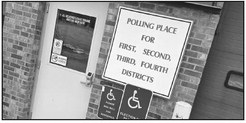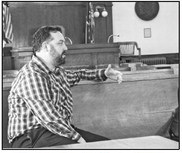Time to end the era of permanent campaigning
On January 20, 2017, President Donald Trump took his oath of office and on the same day officially filed his nomination papers for his reelection campaign. A month later he held his first campaign rally.
In 1980, political advisor Sidney Blumenthal coined the phrase “The Permanent Campaign” with his book by the same name. The phrase describes the change in American politics that puts political consultants above old-style party bosses and where actually governing takes second fiddle to being on top in a never-ending popularity contest.
While presidents since Bill Clinton have routinely embraced the benefits of permanent campaigning, the power of the political campaign machinery has only grown in influence over the past three decades. This has had negative impacts on American politics and society overall.
In place of soaring discussions about issues, Americans are stuck with bombastic hyperbole that seeks to emphasize divisions rather than commonalities. The system punishes leaders who seek mutually beneficial solutions or who even appear to be willing to work with those on the other side of the political aisle. This further fosters the “us” versus “them” mindset that dehumanizes opposition and degenerates complex issues to a yes or no coin toss.
It doesn’t have to be this way and American voters have the ability to make it stop.
Voters must demand that their elected officials put aside their opinion polling and electoral strategy advisors and do their job. One way of doing this would be to put an absolute limit on when active campaigning may occur.
One such way is to cap the amount of time candidates can campaign. Other industrialized nations have election campaign periods as short as two weeks for the president of France and six months in Germany.
Given the size of the United States, an active campaign period of one year prior to the election would be a reasonable limit. A condensed campaign period would also serve to reduce the influence of money on campaigns.
The ultra-marathons of current campaigns have become much about who is palatable to those writing checks than it is about whose ideas are favored by voters.
Ending the era of perpetual campaigning will also free elected officials to take action, that while not popular, may be necessary. The current system fosters a free for all attitude with elected officials compromising their beliefs in favor of the questionable truth portrayed in a public opinion poll.
As Americans wearily wrap up an election cycle that is set to last 1,194 days, it is time to enact change to break the cycle of the permanent campaign and actually give elected leaders an opportunity to lead.




